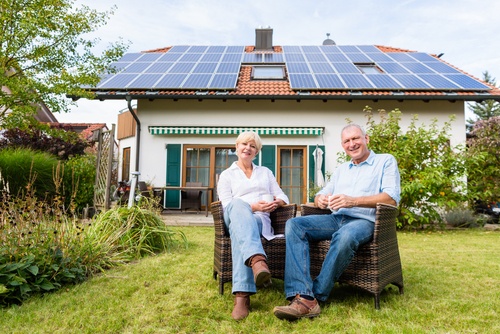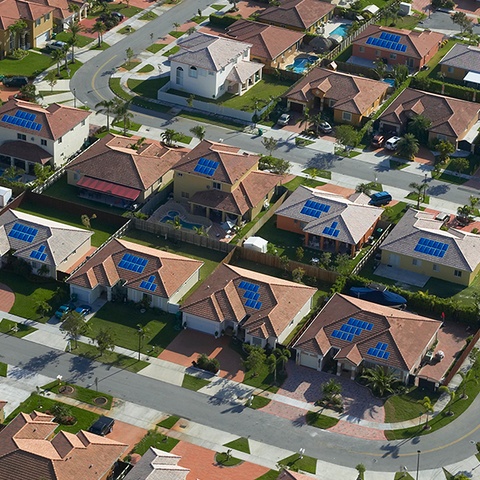
.
In 2017, solar panels are now thinner, sleeker, durable, and made to last decades. Your new solar panel energy system will continue to produce electricity for 25 to 35 years. 2017’s remarkable renewable energy source withstands hard rainfall, heavy snow, pounding hail, and high-velocity winds.
Top Industry Suppliers Contribute To How Long Solar Panels Last
The solar energy industry standard of performance guarantees that panel systems will not degrade (degradation caused by years of sun exposure). This equates to more than 0.7 percent over a 25-year period. What does this mean? In 2042, the solar energy system you installed in your home in 2017 will be at an 82.5 percent production rate.
This is the standard warranty extended by America’s top solar energy providers.
Solar Panel Maintenance
When it comes to solar panel upkeep; the required maintenance is extremely minimal. According to a Google case study, rain runoff tends to sufficiently wash tilted panels but flat panels don’t have that incline so these need to be washed off to keep the efficiency high.
Regardless of the type of panel, we recommend you hose-wash your panels every 3 months (you can do this from the ground, no need to climb up on your roof!). Most solar panel systems will repay owners for their original cost within the first ten years of electricity production.
Solar panel energy purchasers see a fast-paced return on their financial investment through:

- Lower monthly utility bills – immediately after installation and in the future.
- 30 percent Federal income tax credit (30% of solar panel system cost).
- State rebates and solar incentives.
Estimated Solar Panel Maintenance Costs
Your next anticipated question likely addresses the estimated maintenance or replacement costs of a solar energy system. Some component parts of every solar energy system on the market will have to be replaced at some point in time during the life of the product.
Although the solar panels will not likely need to be replaced for decades to come – the system’s inverter component may need to be replaced within the next 10 to 15 years.
An inverter converts the DC from the panels into AC for feeding into your home’s outlets and the local utility’s power grid. Inverters will fail and need to be replaced for the system to continue electricity production.
Today’s recent innovation of micro-inverters are estimated to have an increased lifespan over the conventional inverters for up to 25 years or longer. The cost of replacing one or more micro-inverters will not delay or reduce your return on investment for solar electricity substantially over the next several decades.
So, therefore, maintenance costs for your solar panels will be much smaller than the lifetime savings you will accrue when you go solar.
Where To Find Solar Panel Installers
Solar.com is here to help find you the most trusted solar panel installers at the most affordable rates. We will gather the 3 top bids from the area’s premier solar installers. The best part? All fees for this remarkable consumer service are paid for by our solar installers.
Easily compare solar panel installers to find the best deal on your upcoming project. When solar companies compete – you save, see how much you can save with Solar.com, here!



